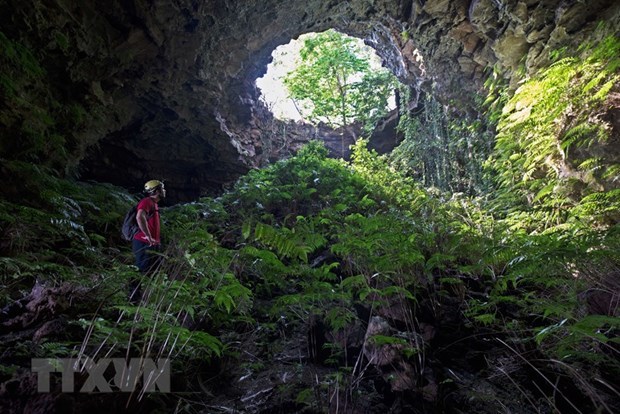Green tourism development needed to preserve geological heritage
Establishing geoparks and developing geotourism are the most effective measures to protect and preserve geological heritage, said an insider.
A view of the Dak Nong UNESCO global geopark
According to Dang Tran Nhu Thuy from the Vietnam Institute of Geosciences and Mineral Resources under the Ministry of Natural Resources an Environment (MoNRE), geotourism is an eco-tourism type that can be developed areas with important geological features and values, such as inactive or active craters, river canyons, waterfalls, or paleontological remains and fossils.
Thuy highlighted the role played by geoparks for the sustainable development of territories.
Geoparks, which have developed for more than 20 years, is a collection of geological heritages with clear administrative and geographical boundaries regulated and protected by law. The model was officially recognised by UNESCO.
Vietnam’s geopark network was established in 2019, with five members namely Dong Van Karst Plateau, Non Nuoc Cao Bang and Dak Nong UNESCO global geoparks, and Ly Son – Sa Huynh and Lang Son geoparks.
These geoparks have increasingly upheld both natural and social values, contributing to promoting geotourism development and realising sustainable development goals in the country, Thuy said./.
VNA

